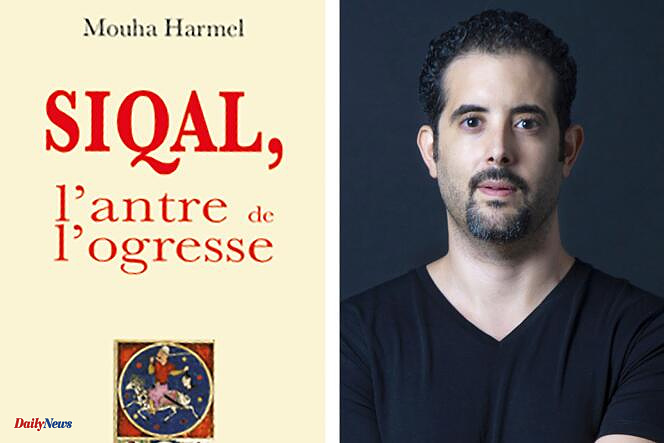Some adults are unaware of it or have forgotten it, but there is, on the other side of our universe, a close but invisible world, perceptible to those who believe in dreams or know how to be attentive to sensations, intuitions and signs. There circulate certain supernatural and evil creatures who, sometimes, going beyond the normal order of things, want to cross the wall of the invisible to attack humans...
It is from this postulate, as imaginary as it is spiritual and intimate, that the Tunisian writer Mouha Harmel started to write his delightful novel-tale Siqal, l'antre de l'ogresse, recently published in pocket format. “The origin of my desire to write coincides with the tales of ogres and ogresses that my grandmother told me, to which I listened with mixed horror and fascination,” he explains in the forward. about his book, before evoking more precisely at the beginning of the text, the fate of his ancestor Ommi Aziza who was married at the age of only 12 to a 30-year-old man.
The child, seized with fear on her wedding night, had the courage to revolt by fleeing. “It was his first story with an ogre,” comments the narrator. His first story to tell. The story of his escape from the monster's castle. Now, after such a misadventure, there is no other destiny than that of writing, but as my grandmother had learned neither to read nor to write, she wrote the stories in her head and engraved their music forever in his heart. Then she told them to her children and grandchildren. »
We understand with these few lines that the literary universe proposed by Mouha Harmel will combine both romantic fiction and the symbolic or even psychoanalytic force of the tale. For the reader, it will be a question of constantly moving from wonder to fear, from earthly tenderness and love to the terror of nocturnal nightmares.
Between the worlds of reality and imagination
In this way, it will also be a matter of experiencing his reading alongside the characters, in turn as an adventure or a test, all at once in his mind, his body and his heart, because the writer precisely refuses to establish a border between the worlds of reality and imagination.
After all, “men always end up forgetting. It only took a few generations for the horror to be dissipated or transformed into tales that would make children shudder. Facts very quickly become legends and then everything can start again.”
As for the story contained in the book, it is mainly that of a family whose father, a widower and rich merchant, has four daughters. One day having to leave for a long journey, he tasks his eldest, Emna, with watching over his sisters, but also makes his guard dog ingest a talisman food, prepared by a marabout, which reinforces the loyalty and vigilance of the 'animal. Alas, the father no longer has his back turned when an ogress, Siqal, pretending to be an old distant aunt, seeks to introduce herself to her so-called nieces.
The trap closes on the latter, the ogress attacks the youngest and it will take all the joint forces of Emna, the marabout, her closest disciple and the dog to overcome the bad spell cast by Siqal .
A constant abyss
As for Emna, she will have experienced everything during her journey to help her sister, discovering the world and discovering herself, moving from innocence to the revelation of her own sensuality, even if most of her learning does not are only images, dreams and fantasies: “She who was so pious, so upright and so devout, with a sense of duty bordering on obsession, when the ogress listened to her heart, she heard the din of all her secret fantasies. Those against whom she led a daily, exhausting battle. Why resist? Let yourself be carried away by the intoxication of your desires..."
Built around Emna's journey, the plot progresses while regularly opening onto internal stories which, themselves, in a constant twist, can lead to other stories. The book is thus presented as a text with multiple keys and entries which contribute to the general pleasure of reading. We move around as if in a dream, as it is true that “all stories begin with a dream”.
With this book, Mouha Harmel found a way to modernize traditional Tunisian stories, by moving them from one form to another, without ever establishing a boundary between literary genres. Visible and invisible coexist there, as in us interiority and external appearance. We will not be surprised to learn that the writer, who in turn studied architecture then philosophy, wishes to place himself with writing at the crossroads of several disciplines. His plural approach is clearly found in Siqal, the lair of the ogress, the quality of which was recognized by the 2023 Comar d’or prize.












